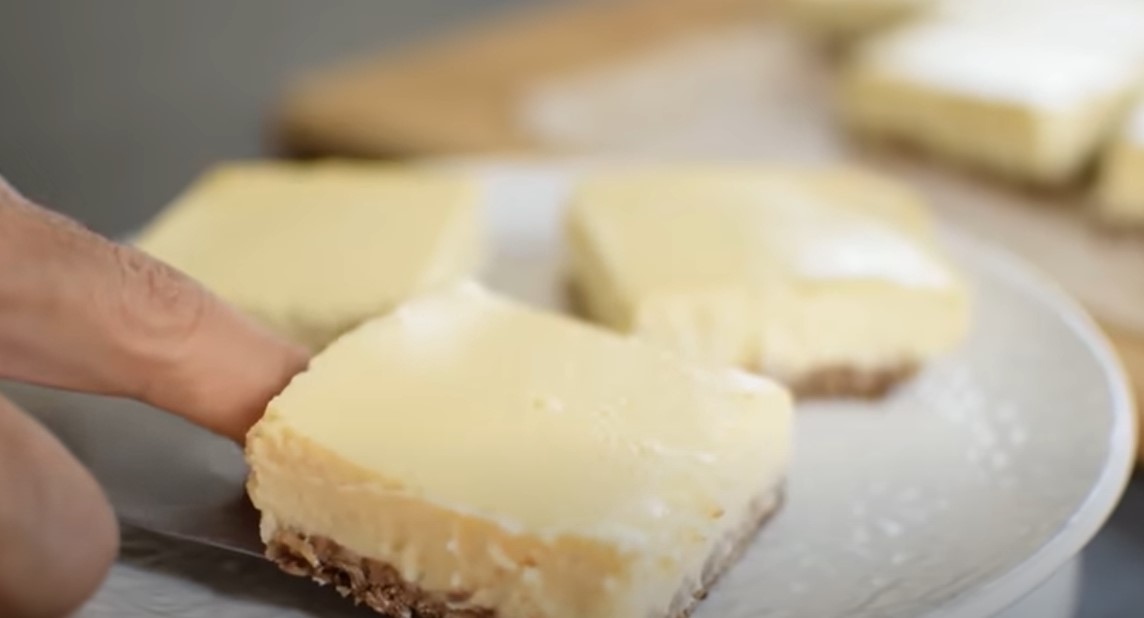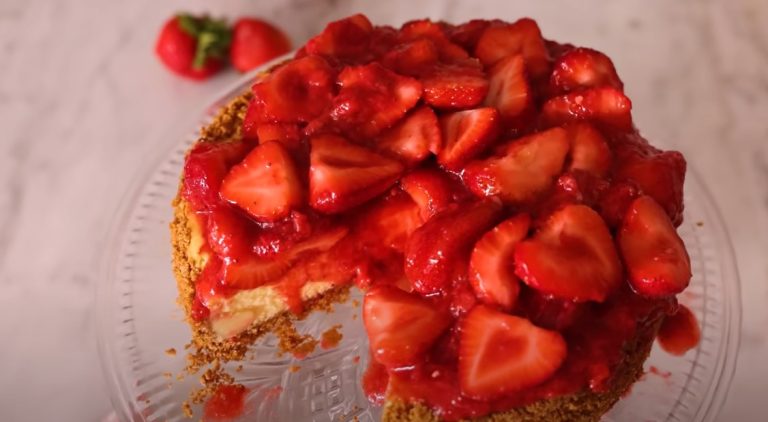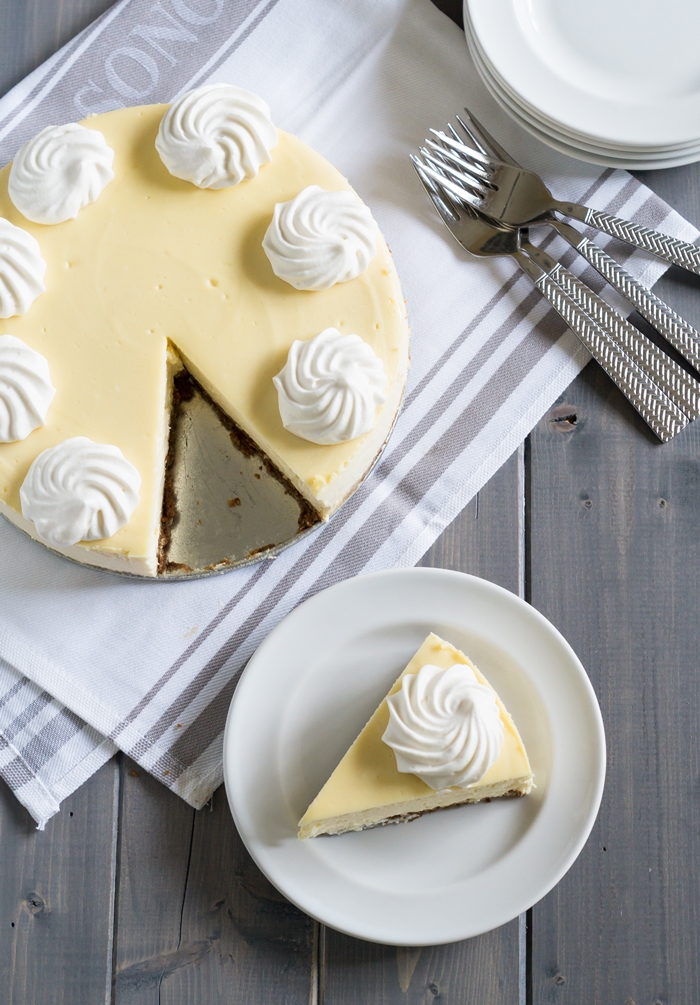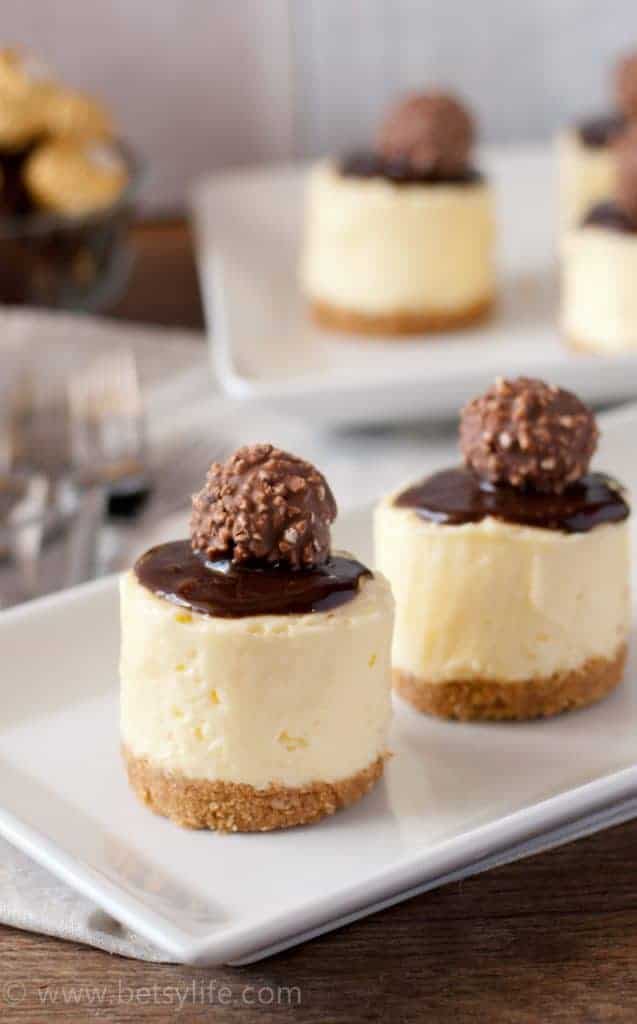Is Cheesecake Fattening? Discover the Surprising Truth
Is cheesecake fattening? Yes, cheesecake is generally fattening due to its high content of cream cheese, sugar, and butter. A typical slice can contain 300–500 calories and significant amounts of saturated fat. While it’s fine in moderation, regular consumption can contribute to weight gain if not balanced with a healthy diet.
Many people share the same curiosity about this beloved dessert. This question or is it just another delightful treat that can fit into your lifestyle? Understanding the nutritional impact of your favorite foods can empower you to make informed choices.
We’ll uncover the truth behind cheesecake and its effect on your waistline. Get ready to dive into the delicious details and discover how you can enjoy cheesecake without the guilt. Keep reading, because what you learn might surprise you!
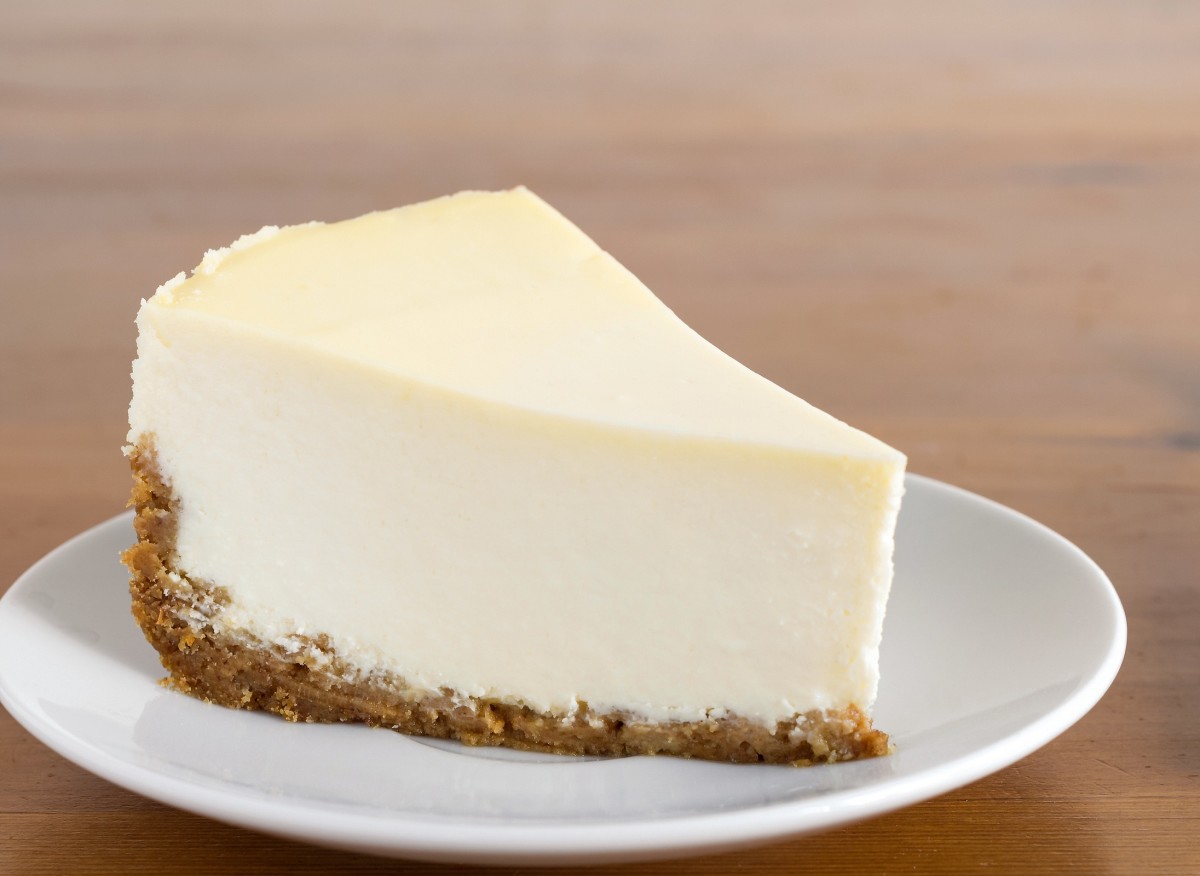
Credit: jamiegeller.com
Is Cheesecake Fattening?
Nutritional Breakdown Of Cheesecake
If you love cheesecake, you might be wondering about its nutritional content. Cheesecake is delicious, but is it fattening? Understanding its nutritional breakdown can help you make smarter choices. Let’s dive into what makes up this creamy dessert.
Calories And Macronutrients
A slice of cheesecake can contain anywhere from 250 to 600 calories. This depends on the size and recipe. Most of these calories come from fats and sugars. The creamy texture often comes from cream cheese, sour cream, or butter. These ingredients are high in fat.
While fats are essential, the type and amount matter. Cheesecake is rich in saturated fats. It’s wise to enjoy it in moderation. Can you fit a slice into your daily intake without overdoing it?
Sugar Content
Have you ever checked the sugar content in a cheesecake? It’s usually quite high. A slice can contain 20 to 40 grams of sugar. This is almost your daily recommended limit for added sugars. The sweet taste comes from sugar, syrups, or sweetened toppings.
If you watch your sugar intake, be cautious with portion sizes. Consider sharing a slice or choosing a less sweet variety. How does reducing sugar affect your health goals?
Protein And Fiber
Cheesecake isn’t known for its protein. A slice might have around 6 to 10 grams. This isn’t much compared to other protein-rich foods. As for fiber, cheesecake offers very little. This means it won’t keep you full for long.
Adding fruits or nuts can boost the fiber content. This can make it a bit more satisfying. How can you make your dessert more balanced?
Vitamins And Minerals
Cheesecake isn’t a significant source of vitamins or minerals. It may contain some calcium from the dairy products. However, this doesn’t outweigh the high calorie and sugar content.
If you’re looking for a nutrient-packed dessert, consider alternatives. Greek yogurt with berries can be a healthier choice. What dessert alternatives have you tried?
Making Healthier Choices
Is it possible to enjoy cheesecake without guilt? Yes, by making a few tweaks. Opt for a smaller portion. Choose recipes with reduced fat and sugar content. Experiment with using low-fat cream cheese or natural sweeteners.
These small changes can make a big difference. Enjoying a treat occasionally doesn’t have to derail your diet. How can you balance indulgence with healthy habits?

Credit: secretlyhealthyhome.com
Calorie Content And Portion Sizes
Cheesecake is a beloved dessert, but how does it affect your waistline? Let’s dive into its calorie content and portion sizes. Understanding these factors can help you enjoy cheesecake without guilt or excessive calorie intake. It’s all about finding the balance between indulgence and mindful eating.
Calorie Content
Cheesecake is often dense with calories due to its rich ingredients like cream cheese, sugar, and butter. A single slice can pack anywhere from 250 to 500 calories, depending on its size and toppings.
Think about the last time you enjoyed a slice of cheesecake. Did you savor every bite, or did the calorie count linger in your mind? Knowing the calorie content can help you make informed choices.
If you’re counting calories, consider the type of cheesecake. Variations like New York-style or chocolate can have different calorie levels. Check nutritional labels or recipe sites for specifics.
Portion Sizes
Portion size plays a crucial role in how cheesecake affects your diet. A typical restaurant serving is often larger than what you might serve at home. Smaller portions can help manage calorie intake.
Have you ever tried sharing a slice with a friend? It’s a fun way to enjoy the dessert without overindulging. Plus, it’s a great excuse to try multiple flavors!
Consider serving cheesecake in smaller, bite-sized pieces at gatherings. This approach lets you enjoy the taste without consuming too many calories at once.
Making Mindful Choices
Do you ever wonder how often you should treat yourself to cheesecake? Balancing indulgence with nutrition is key. You don’t have to avoid cheesecake entirely; just be mindful of frequency and portion sizes.
When you decide to indulge, plan ahead. Maybe you skip an appetizer or opt for a lighter meal earlier in the day. You can still enjoy cheesecake without derailing your diet goals.
Have you thought about baking your own cheesecake? It allows you to control ingredients and portion sizes. Plus, it’s a fun activity that rewards you with a delicious dessert!
By understanding calorie content and portion sizes, you can savor cheesecake responsibly. Next time you have a craving, remember these tips and enjoy every bite, guilt-free.
Ingredients Impact On Health
Cheesecake, a beloved dessert, often gets a bad reputation for being fattening. But, does it really deserve this label? Understanding the ingredients can help. Each component plays a role in its health impact. From the crust to the creamy filling, let’s dive into what makes cheesecake delightful yet calorie-dense.
Cheesecake ingredients significantly affect its nutritional value. Different recipes use varied ingredients, altering health effects. Let’s explore how each element contributes.
Cheese And Dairy
Cheese is the star of any cheesecake. Cream cheese is rich, creamy, and high in fat. It provides the distinct texture and flavor. But, it’s also calorie-dense. Dairy products add calcium and protein. They offer health benefits despite the high fat content.
Sweeteners
Sugar is a common cheesecake ingredient. It adds sweetness and flavor. But, sugar increases calorie count. Some recipes use alternative sweeteners. This can lower sugar content but not calories. Be mindful of the type and amount used.
The Crust
The crust is often made from crushed cookies or graham crackers. These ingredients add texture and flavor. Yet, they also contribute carbs and fats. Some crusts use nuts for a healthier twist. Nuts add protein and good fats but still boost calories.
Additives And Toppings
Many cheesecakes feature toppings or flavor additives. These include fruits, chocolate, or syrups. While fruits add vitamins, they also bring extra sugar. Chocolate and syrups increase fats and sugars. Consider toppings wisely for a balanced dessert.
Understanding these ingredients helps you make informed choices. Choose wisely for a healthier cheesecake experience.

Credit: www.healthline.com
Healthier Cheesecake Alternatives
Cheesecake can often feel like a guilty pleasure, but you don’t have to miss out on the creamy delight just because you’re watching your waistline. Healthier cheesecake alternatives offer a delicious way to indulge without the guilt. You can still enjoy a slice of cheesecake without compromising your health goals.
Healthier Cheesecake Crust Options
The crust is often loaded with butter and sugar. Swap out traditional graham cracker crust for a nut-based crust. Almonds or walnuts can add a rich flavor and healthy fats.
Consider using oats and dates for a naturally sweet and fibrous base. Both options provide nutrients without the empty calories.
Low-Fat Cream Cheese Substitutes
Cream cheese is dense in fat, but you can use Greek yogurt for a lighter alternative. It keeps the tangy taste while reducing fat content.
Cottage cheese blended until smooth can offer a protein boost and maintain the creamy texture you love.
Natural Sweeteners to Replace Sugar
Traditional recipes call for heaps of sugar. Honey or maple syrup can sweeten your cheesecake naturally.
Stevia is another option that doesn’t add calories, making it suitable for those keeping a close eye on their sugar intake.
Incorporating Fruits for Flavor
Adding fruits like berries or mango can enhance flavor and nutritional value. Fresh fruit adds vibrant color and natural sweetness.
Pureed fruit can be mixed into the batter for extra moisture and taste. It’s a simple way to enjoy a fresh twist on cheesecake.
Experiment with Baking Techniques
Consider baking your cheesecake in smaller portions, like mini cheesecakes. They are easier to control and can help with portion management.
Try no-bake cheesecake recipes that require less sugar and fat. They’re quick and often simpler to make.
By exploring healthier ingredients and techniques, you can create a cheesecake that’s both delicious and mindful of your dietary choices. Which alternative will you try first in your cheesecake recipe?
Balancing Cheesecake In A Healthy Diet
Cheesecake can be rich in calories and fats. Enjoying it in moderation within a balanced diet is key. Opt for smaller portions and lighter recipes to savor its taste without overindulging.
Balancing cheesecake in a healthy diet is possible with mindful choices. Cheesecake often gets a bad reputation for being high in calories. Yet, it can fit into a balanced diet. The key is moderation and smart choices.
Understanding Cheesecake Ingredients
Cheesecake ingredients include cream cheese, sugar, and eggs. These provide a rich texture. Each ingredient adds calories and fats. Knowing this helps in portion control. Opt for low-fat cream cheese to cut calories. This small change makes a difference.
Portion Control Is Essential
Portion size matters when enjoying cheesecake. A small slice satisfies sweet cravings. Eating smaller portions reduces calorie intake. This allows enjoying cheesecake without guilt. Balance it with other healthy meals.
Pairing With Healthy Sides
Pair cheesecake with fresh fruits. Berries, apples, or pears add vitamins. These fruits complement the creamy texture. This combination makes dessert healthier. It adds fiber and reduces sugar intake.
Choosing Healthier Alternatives
Healthier cheesecake options exist. Consider recipes with Greek yogurt. It provides protein and reduces fat. Use natural sweeteners like honey or maple syrup. These alternatives maintain flavor with fewer calories.
Planning Treat Days
Include cheesecake on treat days. Plan indulgences to maintain a balanced diet. This approach helps control overall calorie intake. Enjoy cheesecake without affecting health goals. Treat days make desserts more enjoyable.
Frequently Asked Questions
Will Cheesecake Make You Gain Weight?
Eating cheesecake can contribute to weight gain due to its high calorie and fat content. Moderation is key. Balancing it with a healthy diet and regular exercise helps maintain weight. Consider portion sizes to enjoy cheesecake without significantly impacting your weight.
Can I Eat Cheesecake While Losing Weight?
Yes, you can eat cheesecake while losing weight. Opt for smaller portions and healthier ingredients. Balance it with nutrient-rich foods and maintain a calorie deficit. Moderation is key to enjoying treats without hindering your weight loss progress.
Is Cheesecake More Fattening Than Cake?
Cheesecake generally contains more fat than regular cake. It often includes cream cheese, adding extra calories. Cake ingredients vary, but typically contain less fat. Compare nutrition labels for precise information. Moderation is key for both desserts.
Conclusion
Cheesecake can be part of a balanced diet. Eat it in moderation. Enjoy its creamy texture without guilt. Consider portion sizes to manage calorie intake. Choose lighter versions with less sugar or fat. Pair with fresh fruits for added nutrients.
Savoring cheesecake occasionally won’t harm your health. Listen to your body and its needs. Balance is key in any diet. Treat yourself mindfully. Remember, indulgence doesn’t have to mean excess. Embrace a healthy relationship with food. Delight in every bite while staying mindful of your goals.
Related Recipes

